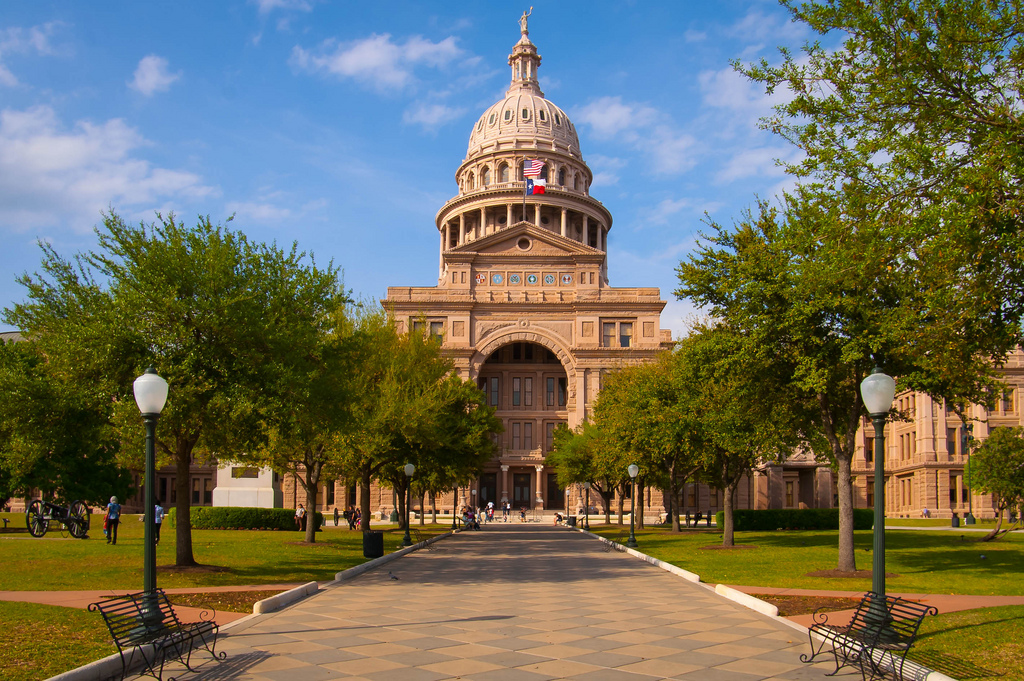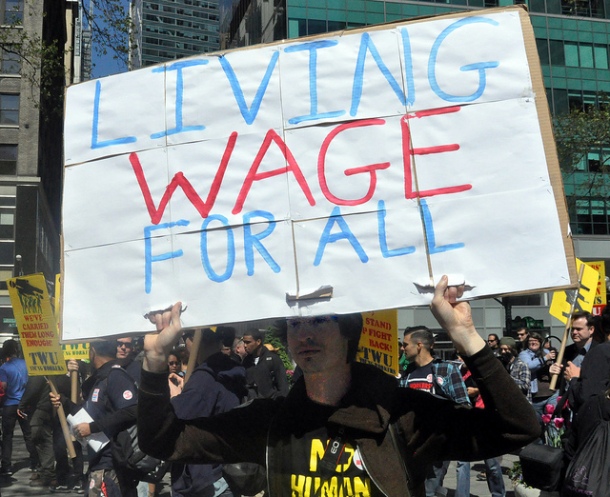They say everything is bigger in Texas, but there is at least one exception: The window for getting new legislation introduced and passed is tiny! Despite the fact that the legislature only meets for 140 days every two years, the Texas Psychological Association (TPA)–with the help of its Student Division–was able to find legislative sponsors for the “Intern Bill” and mobilize TPA members and their representatives to support it.
This bill authorizes licensed psychologists to delegate services to a pre-doctoral psychology intern under their supervision. Allowing licensed psychologists to delegate services to their interns is the first in a series of steps toward making internships more sustainable. As the Director of the TPA’s Student Division, I was given the opportunity to play a key role in advocating for this legislation.
Climbing the legislative ladder
At my first TPA Board of Trustees meeting as the Director of the Student Division, I learned they were planning to find legislators to sponsor the Intern Bill. After having seen the video created by APAGS about the internship crisis, I was well aware that the lack of internships for qualified doctoral students had reached alarming proportions, with up to 29 percent of applicants not matching during the last five years. I coordinated with TPA’s Grassroots committee to mobilize students to support this bill and ended up becoming personally involved in advocating for this legislation.
My efforts began by mobilizing the Student Division’s Board of Directors and Campus Representatives to begin spreading the word to colleges and universities across Texas about this bill and what it could do for psychology students. One of the difficult things about advocacy is that you rarely get feedback about how your message is being received and whether it inspires others to take up the challenge. I learned that our message was effective after TPA invited its members to spend a day together at the capital with legislators, speaking with them about bills we are sponsoring.
Students turned out in record-breaking numbers for this event, ready to take on the challenge of advocating for this much needed legislation.
I headed back to the capital a few weeks later, along with other key TPA members, to testify before the Texas Public Health committee about the importance of passing the Intern Bill. This was an exciting opportunity. I prepared my testimony by doing a little research and getting feedback from students who had not previously matched to an internship program. After all this work, the amount of time I was allowed to testify was reduced from 10 minutes to about 2 minutes! I had to be very concise, but I was able to speak about my most important points during this time (To watch, find the testimony from 04/07/2015 under Public Health, starting at 14:25).
Representative Garnet Coleman and Senator Kevin Eltife have been very supportive of the profession of psychology. Their sponsorship of House and Senate versions of this bill, combined with the persistence of students and TPA members, led to a majority vote with almost no opposition by the House and Senate. The bill became law in June 2015.
The power of student advocacy
My advice to those involved with other organizations interested in promoting similar legislation falls into three categories: awareness, student involvement, and focus.
Awareness: Even in academic settings, people are largely unaware of the severity of the internship crisis. Laying out the numbers gives people a clear view of the problem. Once they have been armed with the facts, people are more likely to become involved in changing the situation. For me, presenting the percentage of students who did not match to accredited internship programs had the greatest impact. These statistics can be found on the APPIC website.
Student involvement: Students are willing to get involved in legislative advocacy. When reaching out to them, it is important that you to provide several avenues to express their support. Those who have the resources to travel to their state’s Capital (or live nearby) should be encouraged to make their position known in person before legislative committees, or set up appointments with their representatives individually. Providing links to online petitions and to the contact information for the state’s representatives can help others get involved. Also, encourage your peers to address these issues with their professors and advisors.
Focus: When giving testimony before legislators keep the focus narrow enough so that you don’t become bogged down in unfamiliar jargon. Present a brief overview of the statistics and then turn your attention to the impact the internship crisis has on individual students and their constituents. Once they understand that billing for interns will lead to increased access to mental health care for their state’s residents, supporting the legislation becomes that much easier.
Don’t be afraid to ask
If you are a student, it is important to be involved in both a national organization, such as APAGS, and your state psychological organization. It was through APAGS that I discovered that the internship crisis existed, which prompted me to get more involved with TPA in trying to do something about it. All I had to do was ask TPA to help with the Intern Bill–they were ecstatic that a student was willing to get involved.
The bottom line is: Don’t be afraid to ask. Ask your state psychology organization to introduce an Intern Bill; ask other students and psychologists to support it; ask your state government to pass it.
It is my hope that the success we have experienced in Texas will make it easier for other state governments to say yes to an Intern Bill.

Editor’s Note: Amanda S. Phillips is a doctoral student in clinical health psychology at the University of North Texas. She is also the 2014-2015 Director of the Student Division of the Texas Psychological Association.







 Texan I met in Houston, Kolby, and we have an adorable 3 year old pup named Hadley. In my free time (yes, you do get some free time later in training) I love to walk with Hadley, cook, garden, and binge watch TV shows. I love food and traveling and am greatly looking forward to the days Kolby and I can experience more of the world together.
Texan I met in Houston, Kolby, and we have an adorable 3 year old pup named Hadley. In my free time (yes, you do get some free time later in training) I love to walk with Hadley, cook, garden, and binge watch TV shows. I love food and traveling and am greatly looking forward to the days Kolby and I can experience more of the world together.